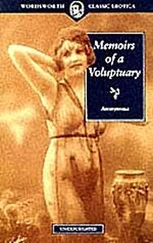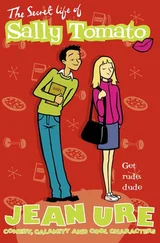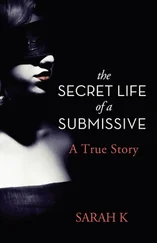Soon after Jasper’s death, authorities in Pineville, Kentucky, noted that he was listed on Marilyn’s birth certificate as her father. This gave them a great excuse to be in contact with a movie star. Marilyn was pestered by lawyers in Kentucky for months as to whether she wanted to stake a claim on Jasper’s meager estate, until finally she made it clear—via her own attorney—that she had no such interest. Also at about this time, she hired a robust woman named Inez Melson, with large round glasses and an officious demeanor, as her business manager. She was instructed to try to send money to Gladys on a regular basis—difficult to do since it was always so difficult to keep track of Gladys’s whereabouts. Though she had filed for divorce from John Eley, Gladys was still with him, as far as anyone knew, and the two were traveling across the country together.
One evening, Marilyn received a long-distance collect telephone call from Gladys, though she had no idea from where it originated. Gladys said that she didn’t want to be found, that she felt let down by Marilyn and Berniece, and that the two of them were “very, very disappointing daughters.” She ranted on about how much she loved Marilyn and that she had only given her up because her own mother, Della, had insisted upon it. She wanted to know how much longer Marilyn was going to hold it against her. Then she said that when Marilyn was a couple of years old, she caught “the whooping cough” from her foster brother, Lester, and that Gladys had moved into Ida Bolender’s home and nursed Norma Jeane back to health. “And I stayed there for a whole month with you,” she told Marilyn. “And you’ve never even thanked me for it.” Marilyn had a very vague memory of Ida once telling her about something like that, but she certainly didn’t remember it happening. It was very rare for Gladys to bring up the past. Marilyn thought perhaps it meant that Gladys was showing some improvement, because her memory was quite clear, and she suggested that Gladys return home as soon as possible so that they could discuss it and perhaps work things out between them. “But that’s not possible,” Gladys said, “because there are people telling me what to do, and they have told me not to go back to California under any circumstances. I could be in grave danger there.” Now Gladys’s illness was talking again. The disturbing telephone call ended with her warning Marilyn to be careful. “You’re being watched,” she told her daughter. “You must believe me, Norma Jeane.” Then she hung up.
Marilyn later told Rupert Allan that she cried herself to sleep that night—but not before making sure all of her shades were drawn.
Don’t Bother to Knock
A t about this time, Marilyn began work on what would be her most important role to date. Fox boss Darryl Zanuck, always ambivalent about Marilyn Monroe’s film future, was not quite ready to assign her to lead roles in “A” pictures and continued to look for more modest projects, budget-wise, for his contractee. He required her to screen test for Don’t Bother to Knock , which had the following story line: Nell Forbes, recently released from a mental institution, is recommended for a babysitting job by her uncle (Elisha Cook Jr.), the elevator operator in the hotel where the action takes place, while the child’s wealthy parents, Peter and Ruth Jones (Jim Backus and Lurene Tuttle), are having dinner. Dressed in a sexy negligee belonging to Mrs. Jones and wearing her jewelry and perfume, Nell begins a flirtatious, at-a-distance, slow dance of seduction for a cynical airline pilot, Jed Towers (Richard Widmark), who occupies a room across the courtyard. After Jed figures out her room number and knocks on the door, Nell invites him in, creating a situation that soon turns dangerous, with Nell alternately threatening to throw herself out the window or kill her young ward, Bunny (Donna Corcoran), now fully awake and terrified. Anne Bancroft, after a busy year acting in a series of TV programs, would make her feature film debut in this movie as Lyn Leslie, a cabaret singer in the hotel’s nightclub and the ex-girlfriend of Jed.
The importance the studio placed on the film is evident in the care it gave the production artistically, assigning the studio’s top composer to create the score, multiple Oscar winner Alfred Newman. The script was adapted by Daniel Taradash, who would be awarded an Oscar in 1954 for his screenplay of From Here to Eternity , the year’s Best Picture Academy Award winner. Future Oscar winner Lucien Ballard was named director of photography; he had gained industry recognition as the creator of the Obie, a camera on which was mounted a key light, designed to eliminate any skin flaws on the face. Formerly married to Merle Oberon, he came up with the idea to disguise the imperfections on her skin that resulted from a serious car crash. The camera was named for her.
Marilyn was extremely nervous about the screen test. She knew that Zanuck wasn’t a fan. She and Natasha Lytess spent hours working on the script. “I have to say that I didn’t think she was ready to take on a role of this magnitude,” Natasha later said. “I may have underestimated her talent in that regard. Or, at the very least, I underestimated her resolve. The time we spent on the script—two days, nonstop and I don’t even remember sleeping!—was very dramatic and passionate and filled with angst , very much like Marilyn all the time. In the end, she did such a great job on the screen test that Zanuck saw fit to write her a note to congratulate her, which surprised—and thrilled—her to no end. She was so insecure and unsure of her ability, any validation at all was considered high praise.”
However, Zanuck would say of her performance in the film, “She’s a dumb tomato and half-crazy to boot. She’s a sex pot who wiggles and walks and breathes sex, and each picture she’s in she’ll earn her keep, but no more dramatic roles .”
Marilyn’s friend John Gilmore quoted Montgomery Clift, who said it best about Marilyn’s relationship with Zanuck and Fox at this time: “Fox wanted to keep a tight grip on her and drain her dry. That’s what they were after. The best talents, the other artists, they saw that differently and understood Marilyn had a right to make the choice of not demeaning herself. But the boss wouldn’t let her. They didn’t want an actress. That’s what they agreed upon. They’d sit at their round table and decide that Marilyn wasn’t capable of making a relevant decision.”
While some critics of the day were dismissive of Marilyn’s emotive skills—giving Fox’s Zanuck ammunition to use against her—others would praise her, including Daily Variety : “[Marilyn Monroe] gives an excellent account of herself in a strictly dramatic role which commands certain attention.” Studio decision makers were encouraged, and after filming concluded in January 1952, they had another film ready for her ( Monkey Business , which began its eight weeks of production on March 5).
Over time Marilyn’s acting in Don’t Bother to Knock has been reassessed and her notices when the film was released in 2002 as part of a DVD boxed set were uniformly excellent. As film noir, the film has stood the test of time, and gives an inkling of what the future superstar would do with a highly emotional, offbeat role a year later—that of Rose Loomis, an adulterous wife, in the splashy 1953 Technicolor hit Niagara . When Marilyn’s psychological problems eventually became known, many overanalytical parallels would be made between her and her screen character, Nell Forbes; but these parallels are unwarranted, and unfairly diminish her talent as an actress. She came to the set prepared, and though coached by Natasha Lytess, she delivered a great performance.
Читать дальше












